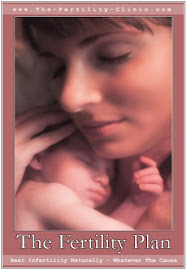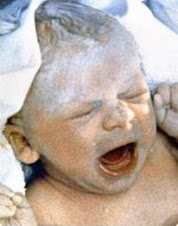It’s becoming more the norm than the exception: women who are giving birth in their late 40’s and early 50’s.
Actress Geena Davis gave birth to twins at 48; Jane Seymour gave birth at 45; Cheryl Tiegs at 52.
Yet statistics show that once a woman reaches the age of 40, her fertility rate is pretty low. That’s why many women seek an egg donor for help.
What is egg donation? I took a closer look at the procedure and the female donors who are changing lives.
Pick up almost any college newspaper and you’ll see the ads seeking egg donors like this 24-year-old grad student who doesn’t want us to use her name.
Earlier this year at a clinic out-of-state, she donated 28 of her eggs, and she says she’s ready to do it again.
“I’m helping someone and they appreciate it,” she said.
The fact is, in a society where more and more women are waiting longer to get pregnant, egg donors like her are desperately needed.
Dr. Michael Steinkampf is the founder of Alabama Fertility Specialists, ranked among the top 25 IVF clinics in the country for women under age 35 by fertilitysuccessrates.com.
He says that when it comes to getting women pregnant, egg donation is the most successful form of invitro fertilization.
“This has become an important part of reproductive life in the United States because more women are working, more women are deferring their first pregnancy, and so more women are finding themselves with difficulty conceiving and in their mid 30’s or early 40’s and often the best treatment for them is egg donation,” Dr. Steinkampf said. “About 10 percent of all the invitro fertilization cycles in this country are done with eggs donated by another woman not the infertile woman herself.”
The problem is—there are more women needing eggs than donors. In Alabama, the average wait period for a woman to receive donated eggs is six months. In other states, up to two years.
And being an egg donor is a commitment. You must be in your early 20’s—and be no older than 32. You have a spotless medical history and agree to a strict medical regimen, including daily injections of fertility drugs to stimulate the ovaries to produce eggs and an outpatient procedure under sedation to retrieve them.
Complications are unlikely, and Dr. Steinkampf said the procedure won’t affect a donor’s egg supply.
“Taking fertility drugs being an egg donor it doesn’t use up your eggs any faster than what would normally be diminished,” Dr. Steinkampf said.But the concern for some is the lack of follow-up once a donor walks out the door.
Debra Spar is the author of “The Baby Business.” She says a national registry is needed to track the health of egg donor and ensure that egg donation is safe.
“There’s a difference here between asking people to undergo a procedure that’s about their own health and asking people to undergo a procedure that is directed toward somebody else.” Spar said.
But in countries like Canada where regulations have been in place since 2004, egg donation has dropped dramatically by 50 percent.
And while some doctors admit a registry makes sense, they point to legal and privacy issues as roadblocks.
Dr. David Adamson of the American Society for Reproductive Medicine said “We have to be very careful in our country that we don’t discriminate against the infertile and don’t restrict the reproductive choice simply because it’s about reproduction and the reality is that there have been tens of thousands of babies born tens of thousands of donors.”
And for many donors that’s what it’s all about: helping others experience the miracle of life. In some states, egg donors can earn up to $20,000 dollars per egg donation.
Alabama Fertility Specialists pays its donors $3,000.
Medical guidelines suggest a woman can make six donations in her lifetime.
SOURCE: NBC13.COM
Wednesday, June 24, 2009
Subscribe to:
Posts (Atom)
| Powered By widgetmate.com | Sponsored By Digital Camera |






